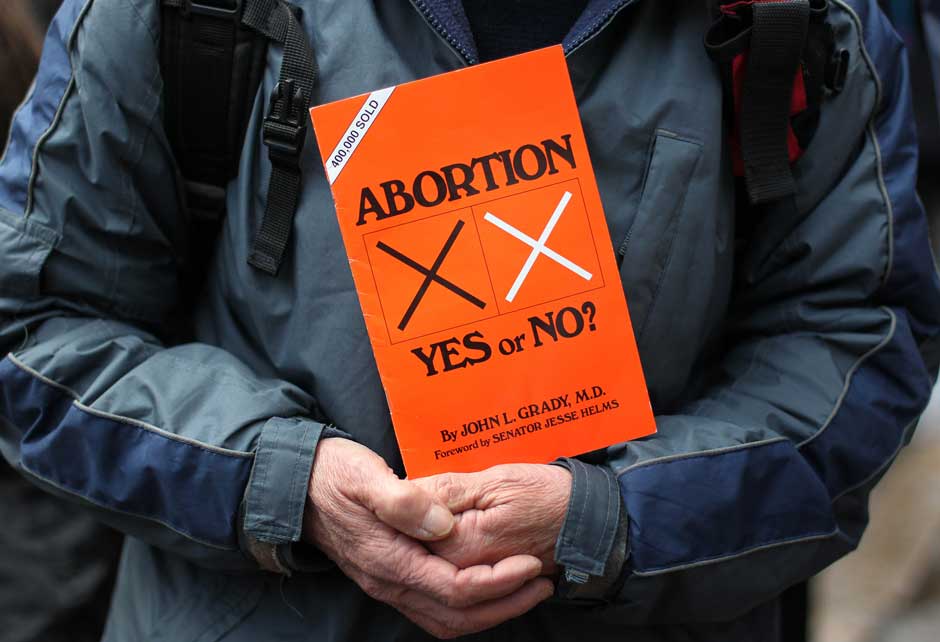Women attending abortion clinics have a right not to be menaced
We need to consult on measures to enforce a buffer zone


Your support helps us to tell the story
From reproductive rights to climate change to Big Tech, The Independent is on the ground when the story is developing. Whether it's investigating the financials of Elon Musk's pro-Trump PAC or producing our latest documentary, 'The A Word', which shines a light on the American women fighting for reproductive rights, we know how important it is to parse out the facts from the messaging.
At such a critical moment in US history, we need reporters on the ground. Your donation allows us to keep sending journalists to speak to both sides of the story.
The Independent is trusted by Americans across the entire political spectrum. And unlike many other quality news outlets, we choose not to lock Americans out of our reporting and analysis with paywalls. We believe quality journalism should be available to everyone, paid for by those who can afford it.
Your support makes all the difference.Outside healthcare centres across the country, we have seen a worrying trend. In recent months there has been a significant rise in harassment and intimidation. Women going to sensitive appointments and staff on their way to work have found themselves surrounded, filmed, and even prevented from entering premises.
Other countries have had years of angry abortion wars – but we don’t want that kind of antagonism imported here. Of course some people have strong views, but debate in Britain has usually been responsible. That’s why I think it is time for the Government to look at sensible measures to stop this escalating, so women and staff can stay free from intimidation or abuse
Yesterday, I visited a clinic in East London which provides counselling, contraception and terminations. Staff told me the protests had become very distressing. One woman found herself surrounded by a group of six protesters, barracking her and bombarding her with questions. When she finally got through the door, the nurse said she was in pieces.
At another clinic, protesters have been surrounding the door with huge banners and billboards and filming women trying to get in. When asked not to film, they have refused. I heard too the story of a heavily pregnant member of staff who was so targeted by protesters that she had to get the police to escort her back to her car.
This kind of intimidation and harassment isn’t on. Little wonder that a recent video of a pregnant charity worker challenging the tactics of the protesters has gone viral. As that woman rightly said, the protesters have no idea what the personal circumstances are of those they are judging and harassing.
Sometimes a woman may be going for counselling, sometimes for contraception. Sometimes they have taken the very personal decision to terminate a pregnancy and sometimes they are attending for aftercare. Either way, women should be able to attend appointments or make difficult decisions about abortion with their family and their doctors. And they shouldn’t be filmed or accosted.
Most people would agree that there is a time and a place to make a personal decision about terminating a pregnancy, and it is not under pressure from protesters on the street. There is a way to hold a proper debate around the current legal framework and it is not through harassment or causing personal distress. So that’s why we need to prevent this situation from escalating. Other countries have experienced years of aggressive and extreme tactics in anti-abortion protests – causing deep distress, fighting a war over women’s bodies, putting people’s safety at risk, and making it extremely hard to operate legal healthcare services. At its most extreme, in the US, there have been arson attacks on clinics, violent assaults and murders of doctors. No one wants to see that here.
That’s why I’m calling on the Government to consult on new measures to enforce a designated area around abortion clinics – so-called buffer zones – within which anti-abortion protests cannot be held. Measures like preventing the photographing or recording of patients, staff and their car number plates. And stopping entrances being blocked and patients being followed, and prohibiting the disclosure of the identity of anyone entering or leaving a clinic. So-called abortion buffer zones have been used to stop anti-abortion protests happening directly outside of clinics in the US, Canada and France, and it is time to investigate whether they should be used here too.
These measures do not prevent anti-abortion protests, or stifle debate on the current legal framework. They do not stop protests outside parliament, or prevent individuals from lobbying MPs. They don’t stop people protesting down the street, but they do stop them crowding round the door. The right to protest is enshrined in British law and, of course, it is important that we protect that right.
Today, on the International Day of Human Rights, it is important to protect the rights of women to access legal medical advice and treatment too. Buffer zones would simply prevent protesters interfering with the rights of women to access lawful healthcare – and protect the staff who provide it – ensuring people can go about their daily lives without being intimidated or distressed.
Whatever people’s views on abortion, I hope we can build support for these proposals. I strongly support our abortion laws, but I know many of those who don’t still agree that people should not be intimidated or distressed when accessing services. Let’s agree together to steer clear of the American-style abortion wars and stick with our calm and measured British approach instead.
Yvette Cooper MP is the shadow Home Secretary
Join our commenting forum
Join thought-provoking conversations, follow other Independent readers and see their replies
Comments